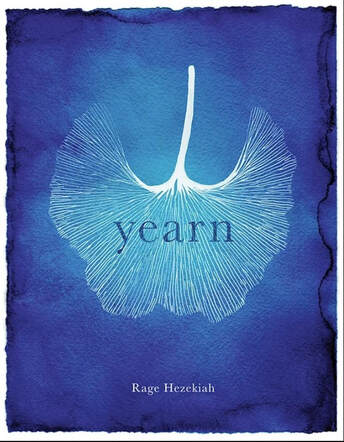|
11/6/2022 0 Comments Rage Hezekiah :: Mónica Gomery I think, what a bright day god has given, what a way to live without a knee on your throat. “In June” Reading Rage Hezekiah’s Yearn (Diode, 2022) I gasp audibly again and again. I ask myself—how did the author give herself the permission to say what these poems say? It’s hard to extract yourself from the book’s energy once you begin. Propelled breathlessly from poem to poem, I traveled Hezekiah’s wide-ranging forms and razor-sharp language. The book begins and ends in the body, in the rawness of desire—first, a youthful and robust sexuality, and by the end, the labor of wanting and creating a child. In the words of Evie Shockley, these poems show “a woman making her desires known to herself, so she can step out to meet the life she wants to live.” The speaker’s voice grows ever more rooted and earthbound, experiencing wonder and grief in the same tight line, able to both pierce the world with her looking, and turn inward to reflect on the self. There’s so much to admire about Hezekiah’s use of language. She has a knack for brevity. I can feel the intentionality of each word, charged and carefully chosen, playing its role in a concise, measured amount of space. Her poems say only what needs to be said. They sparkle with clarity and precision. I love how the short, economical poems in this book work in harmony with other sweeping, spacious poems. This collection is full of breath, longing, and revelation. This is Hezekiah’s second collection, following her debut Stray Harbor. Each of her books has moved me deeply. In landscapes of community gardens, orchards, grasslands, and so many glittering bodies of water, she names and renames the divine, a God who “planted/ kinesthetic stars/within the bay, bright/ sparks flowering.” Reading her books, I connect to my own ancient longings, part of a larger body that weaves all bodies together. Her language brings me home. ~Mónica Gomery
0 Comments
Leave a Reply. |
Powered by Women

 RSS Feed
RSS Feed